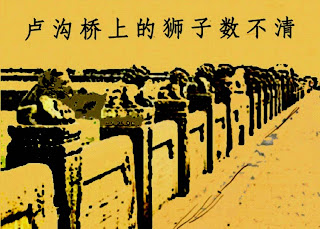孤掌难鸣
Literally: It is difficult to make a sound with one hand (Han Feizi 韩非子).
One cannot clap hands with one hand.
It is difficult to reach achievements by counting only on oneself.
It is difficult to succeed without support.
A literally similar idiom with a different meaning:
一个巴掌拍不响
With one hand, one cannot clap hands.
It takes two to fight.
This is sometimes used also to express the following ideas as written in the Bible:
לא טוב היות האדם לבדו (בראשית ב, 18)
Literally: It is not good for man to be alone (Genesis 2, 18).
Or :
"טובים השניים מן האחד" (קהלת ד, 9)
Literally: Two are better than one. (Ecclesiastes 4, 9)
*
独木不成林
One tree does not become a forest
Cooperation is needed in order to reach achievements.
One person cannot achieve much by himself.
As the (Jewish) sages of blessed memory said:
ואני כשלעצמי, מי אני? (מסכת חולין, פח ע"ב- פט ע"א).
Literally: If I am only for myself, who am I? (Hulin tractate, 88, 72 - 89, 71)
*
狗多不怕狼人多不怕虎
People, when many, are not afraid of tigers [just as] dogs, when many, are not afraid of wolves
There is power in numbers.
*
千里自行始于足下
[Even] a journey of thousand li[1] starts with one step
*
人修路万人安步
[One] man repairs the way [and] ten thousand people walk safely
*
一菜难合众人味
One dish cannot be liked by everybody
*
万川归海海不盈
Many (literally: 10,000) rivers flow to the sea and the sea is not full.
Acquiring knowledge is never complete.
In the Bible it is written:
כל הנחלים הולכים אל הים והים איננו מלא (קהלת, א', 7).
Literally: All the rivers flow into the sea and yet the sea is not full (Ecclesiastes 1, 7)
*
牛身上拔根毛无伤大体
Plucks a hair from an ox – does not affect the whole body
Insignificant harm.
*
九牛一毛
Literally: One hair from nine oxen.
Very insignificant.
In English they say:
A drop in the ocean.
This originates in a letter written by the great historian Si Maqian 司 马迁 145-87) BCE) to his friend after being sentenced to death. In this letter he wrote, "If I were to die before completing my work, my death would be as insignificant as the loss of one hair from nine oxen".
Si Maqian was sentenced to death after appearing in court and defending the commander Li Ling 李陵, whom he knew and admired. The latter had been defeated by the Huns and surrendered after running out of food and arrows. Emperor Wu 武帝 (156-87 BCE) had expected the commander to die in battle or commit suicide, and sentenced Si Maqian to death for defending such a "traitor". In the end Si Maqian survived by undergoing voluntary castration, then considered a fate worse than death.
*
三三五五
Literally: Three three five five.
In threes and fives.
Small groups scattered here and there.
*
七大八小
Literally: Seven big [and] eight small.
Items of various different sizes scattered together.
*
三十六行
Literally: 36 professions.
All occupations and professions
*
卢沟桥上的狮子数不清
Lions on the Marco Polo Bridge
Countless.
*
门庭若市
The courtyard in front of the gate [is noisy] like a market
Said of a crowded place.
This is based on the following story:
During the Warring States period (475-221 BCE), King Wei 威of the State of Qi 齐 accepted the advice of his Minister Zou Ji 邹忌, which was to call upon the inhabitants of the state to express their views on the government. He issued an order inviting every man, whether a minister or peasant, to express their ideas freely, to point out his mistakes and give him advice. Likewise, he promised to give them prizes for doing so. Following his invitation, multitudes hurried to his court, crowding in front of his palace, and the place became as noisy as a market.
*
淡酒多杯会醉人
Many cups of light wine can make a person drunk
Many small problems may become one big one.
*
人山人海
Literally: men mountain men sea.
A sea of people, multitude.
*
五花八门
Literally: Five flowers [and] eight doors.
Of all kinds, a large variety.
[1] Lugou Bridge Marco Polo Bridge Beijing







All the chineses proverbs are written incorrectly. Characters are in reverse order. Meaning its not 海人山人 but 人山人海 and so on.
ReplyDelete